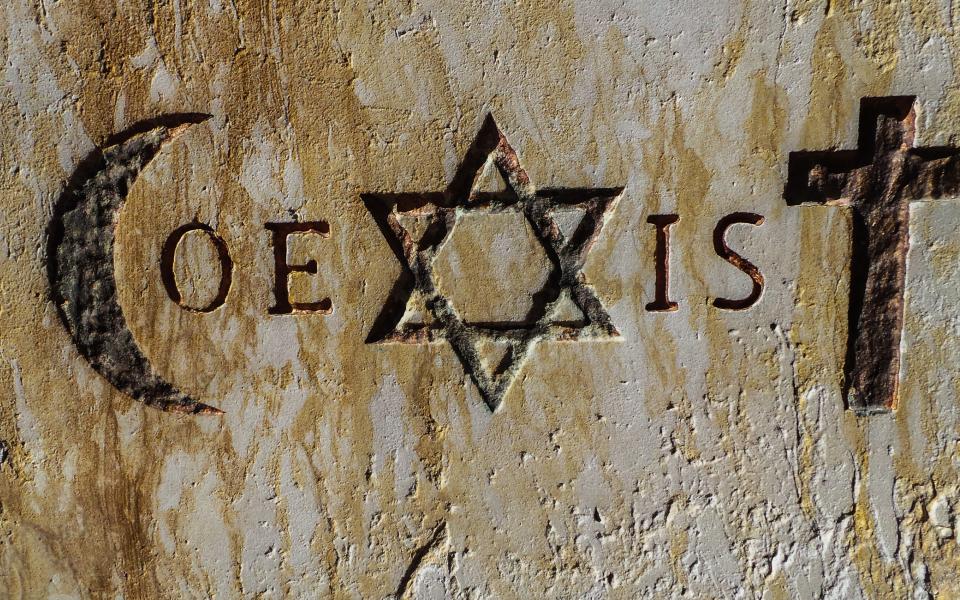
My friend of many years, Mohammed Abu-Nimer wrote an article entitled “Interfaith Peacemakers Cannot Remain Neutral on Gaza.” It is not only a condemnation of the supposed timidity of the interfaith response to the suffering of the people of Gaza, but also a last-minute call to action in order to save what is left – in his opinion - of the interfaith movement.
The interfaith movement that Mohammed refers to in his article is the one that is tethered to religious leaders. “Religious leaders and interfaith groups,” represent his double focus. For example, the Muslim leaders involved in interfaith dealings or the Roman Catholic Church’s interfaith initiatives, etc. These represent one legitimate genre of the interfaith movement. Scholars of various religions talk. Religious leaders in full regalia stand with each offering a symbol of mutual respect. Dialogue defines their involvements which have the backing of royals, heads of states, and wealthy, influential individuals.
But there is an entirely other segment of interfaith work. It is informal and almost unintentional. Sports teams are interfaith. So are businesses and schools. The World Kitchen feeds people of all religions. Musicians of all faiths perform for audiences of all or no faiths. These groups, by the tens of thousands, are not anchored to one official religious group or another. They simply go about their normal work with an unselfconscious interfaith way. Peripatetic, functioning in an interfaith manner while in motion! Diplomats who are trying to broker a peace agreement might also be classified as unintentional interfaith peacemakers.
Still there is another interfaith model. It is self-consciously interfaith and aims at uniting people of various faith backgrounds in local settings around the world to address common challenges. For them, interfaith isn’t a by-product but is a starting point. Wells need to be dug, blood banks need to be established, trees need to be planted, indigenous lands rights need to be respected! Practical problems can be better addressed if village people of different faiths work together. Ordinary projects funded by a world of ordinary people who believe in grassroots interfaith initiatives.
Now to the war in Gaza from an interfaith perspective.
The war in Gaza is not a “one off in time,” October 7, 2023, and months afterwards. Layers of time have been peeled back, so that 1948 comes now into play as does Auschwitz and Occupation and the histories of Islam and Judaism. Layers of consequence are erupting. The Gaza War in not a dust up on the surface; it is a global earthquake where the tectonic plates are shifting, and the aftershocks are felt thousands of miles away on U. S. college campuses. It appears that a violent eruption is going to create a new landscape in multiple, unpredictable dimensions.
“Interfaith peacemaking” at this profoundly unsettling moment is difficult and open to ridicule. In peaceful times, interfaith work might seem happily aspirational. In turbulent times, interfaith peacemaking might seem vacuous and impotent. When unspeakable savagery is visited upon one group or another, interfaith groups can offer words of condemnation. But the question arises: “What do you bring to the table when peace is most needed?” Answer: something to build on when the bloodletting ends.
I have had an opportunity to listen to peace-making friends in Gaza and Israel describe what they are feeling right now. Words like “despair,” “sadness,” “rage,” and “unceasing sorrow” pour out of their raw hearts. They all know someone who has been murdered or raped or starved or tortured. Peace advocates themselves have been killed. So, these people are keenly aware of how hard it is to retain the memory that there are good people on both sides. But they do. Bravely so!
Whether the group is Women Rage Peace or Women of the Sun or Youth Ambassadors for Peace or Standing Alone Together or any of the many peace groups that have not taken sides in today’s war, they endure. They are slaves to the hope that someday the fighting will stop. Someday a new Israel/Palestine paradigm will emerge. Diplomatic teams will wrestle with matters of land, sovereignty, jurisdiction, etc. Others – peace people – will one day have to work out a truth and reconciliation process and create avenues to assist combatants in moving from demonization to humanization.
I would expand on Mohammed Abu Nimer’s article “Interfaith Peacemakers Cannot Remain Neutral on Gaza.” Instead of remaining neutral, be open-hearted to the sufferings and losses of Israelis and Palestinians. Become family members of all the brokenhearted. When history encourages hopelessness, cling to a vision of hope that offers full life to Israelis and Palestinians as neighbors. Stand fast in this brutal moment when the action is entirely out of our hands. When the time to rebuild appears, then be fierce agents of healing and building a livable Middle East. Hold on!